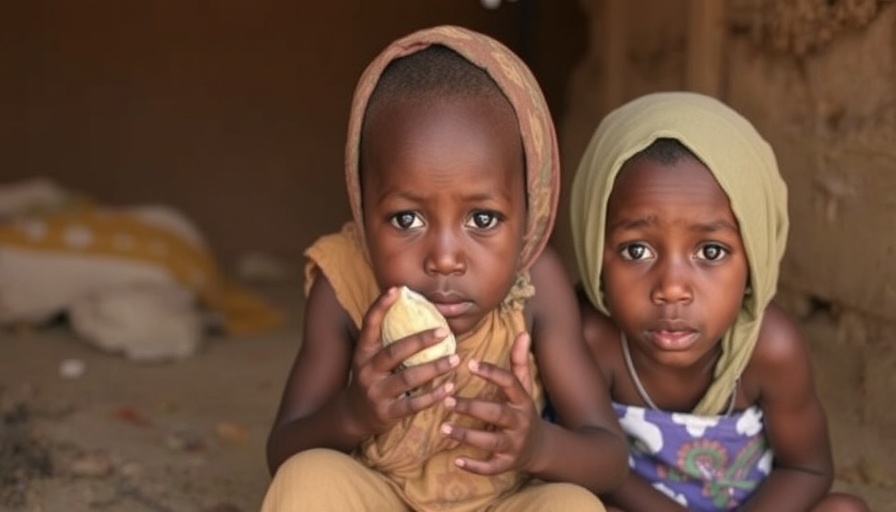
Urgent Crisis: Severe Hunger Plagues Parts of Khartoum
As the political landscape in Sudan continues to deteriorate, the World Food Programme (WFP) reports alarming rates of hunger within certain districts of Khartoum. The current inflation, exacerbated by military confrontations and poor governance, has left many residents unable to secure basic food supplies. According to the WFP, nearly 7.3 million people in the country are grappling with acute food shortages, with the situation particularly dire in urban centers like Khartoum.
Implications for Sudan's Economic Stability
Chronic instability in Sudan poses a significant risk not just to the nation's citizens but also to its economic frameworks. Investors are closely monitoring the situation, recognizing that food insecurity can lead to increased unrest, further hampering business operations. Global trade relations are at a tipping point; if the humanitarian crisis escalates, it can hinder Sudan's integration into the global market, stunting long-term economic growth.
Crisis Management: A Call for International Attention
The WFP has called upon international bodies to direct more support towards Sudan, urging that humanitarian access be prioritized. Continued neglect may not only worsen the immediate crisis but can also have rippling effects throughout East Africa, affecting trade dynamics and diplomatic relations across the region.
Future Trends in Africa’s Geopolitical Climate
The plight of Khartoum mirrors broader issues pervading the continent, as political instability and food insecurity intersect. As conflicts emerge, stakeholders must grapple with the heightened need for adaptive governance. Countries that respond effectively may find avenues for improving foreign relations and trade, especially with trade partners like the EU and China, who have vested interests in the region.
Conclusion: The Need for Proactive Measures
With the crisis in Khartoum serving as a vital intersection of humanitarian need and global economic implications, stakeholders from business leaders to policymakers must advocate for immediate action. Understanding the intricacies of Africa's role in the global economy becomes critical. To ensure stability and growth within the region, fostering dialogue and investment in humanitarian responses is essential.
 Add Row
Add Row  Add
Add 


 Add Row
Add Row  Add
Add 

Write A Comment